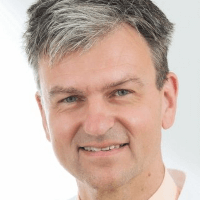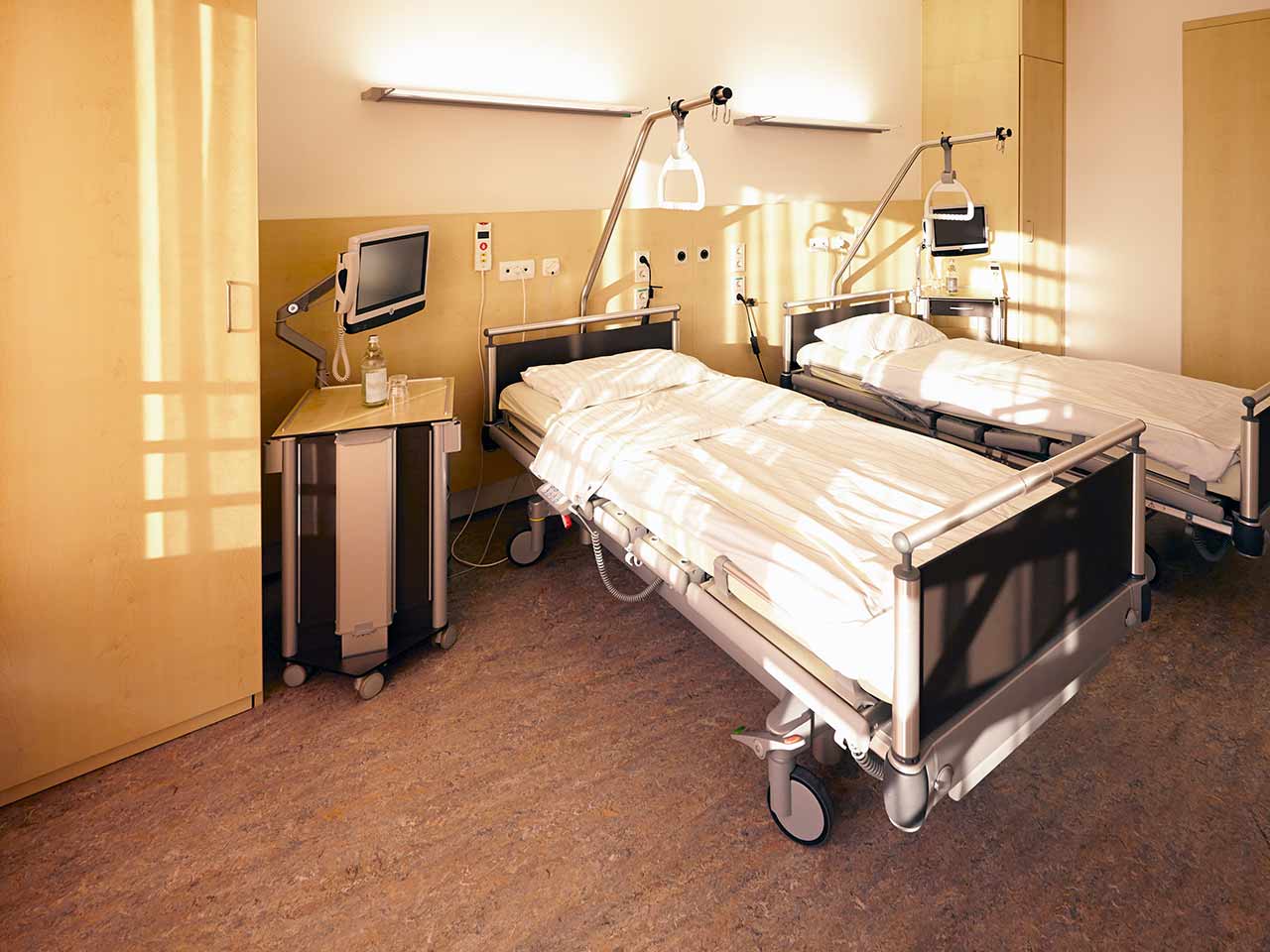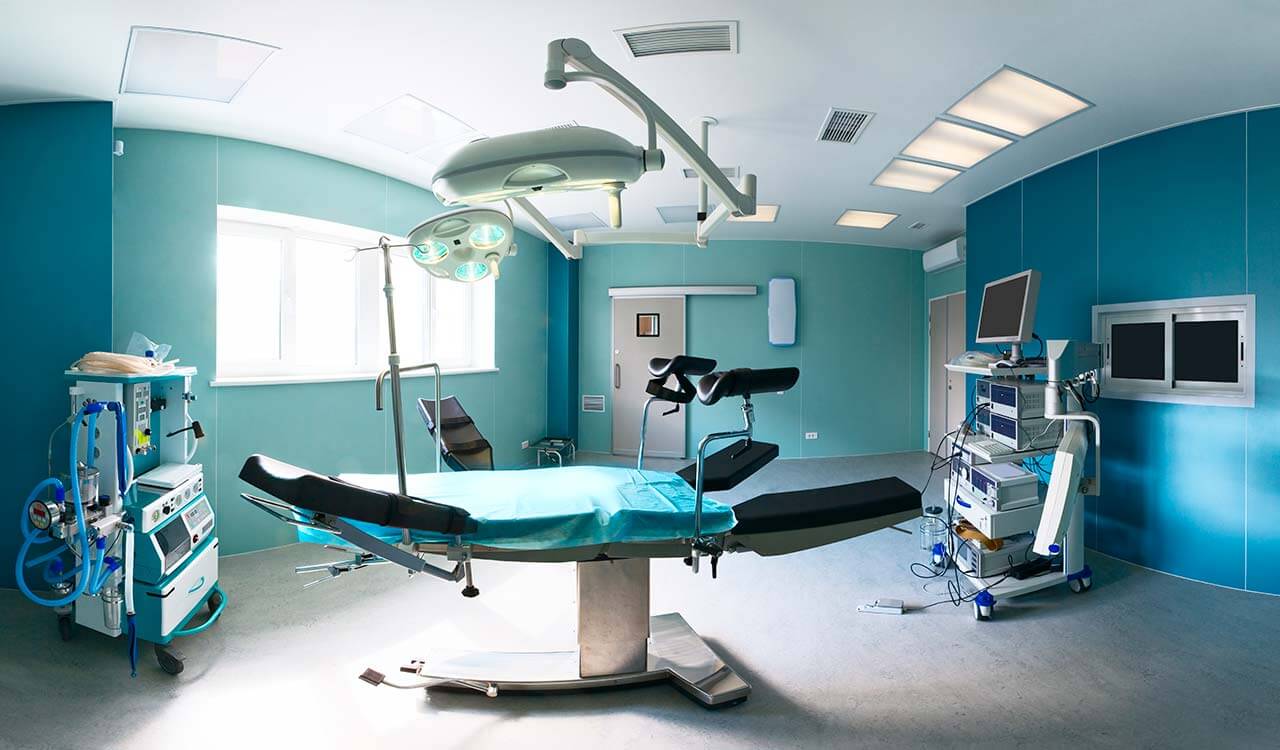
The program includes:
- Initial presentation in the clinic
- clinical history taking
- review of medical records
- physical examination
- laboratory tests:
- complete blood count
- general urine analysis
- biochemical blood test
- inflammation markers (CRP, ESR)
- blood coagulation analysis (aPTT, PT, INR)
- autoimmune tests
- ultrasound of the urogenital system
- CT/MRI of the abdomen and pelvic organs
(if indicated clinically, additional cost is 650/1200€) - nursing services
- consultation of related specialists
- treatment by chief physician and all leading experts
- explanation of individual treatment plan
Required documents
- Medical records
- Abdonimal and retroperitoneum US scan (if available)
- Abdonimal and retroperitoneum MRI/CT scan (if available)
Service
You may also book:
 BookingHealth Price from:
BookingHealth Price from:
About the department
The Department of Nephrology at the Helios Hospital Hildesheim provides highly accurate diagnostics and effective treatment of the full range of kidney diseases. The department also provides high-quality medical care for patients suffering from arterial hypertension, water-electrolyte and acid-base balance disorders. The department's nephrologists have a wealth of experience in caring for patients after kidney transplantation. In this area, the task of the specialists is to prevent rejection of the transplanted kidney and maintain its normal function. In addition, the department is known for its successful achievements in the field of renal replacement therapy (dialysis). More than 26,500 dialysis procedures are performed in the medical facility annually. The experienced specialists in this field are available to patients 24 hours a day. The department has excellent resources to provide high-quality medical care and restore normal kidney function. The medical team cooperates closely with cardiologists and other doctors from related fields, which guarantees a comprehensive approach to treatment. The Chief Physician of the department is Prof. Dr. med. Burkhard Kreft.
The main department's focus is on the diagnostics and treatment of acute and chronic kidney failure. Chronic kidney failure is diagnosed with a gradual deterioration in kidney function, while the acute form of the disease is characterized by a sudden dysfunction of the organ. To establish an accurate diagnosis, doctors carry out a blood test and an urinalysis, and also measure blood pressure. If necessary, imaging diagnostic methods can also be used, including ultrasound and X-ray examinations. With the confirmed diagnosis, the attending physician individually develops the optimal treatment regimen for the patient. The department's doctors usually use a set of drugs to normalize kidney function. In more complex clinical cases, renal replacement therapy (dialysis) is required. Kidney failure is often accompanied by impaired water-electrolyte and acid-base balance. When such changes are detected, the specialists of the medical facility carry out appropriate drug therapy, and also recommend the patient to follow a certain diet.
In case of severe forms of kidney failure, the only effective treatment is renal replacement therapy – dialysis. The essence of the therapeutic procedure is that waste products and excess fluid are removed from the body artificially. This means that dialysis completely replaces kidney function. The department provides all modern types of dialysis: hemodialysis, hemofiltration, hemodiafiltration, peritoneal dialysis and hemoperfusion (in case of poisoning). Home hemodialysis is also possible. The required form of dialysis is prescribed to the patient exclusively on an individual basis, taking into account particular clinical indications. In addition, the department uses modern procedures for blood purification, such as plasmapheresis and extracorporeal photopheresis.
The team of the department's nephrologists also admits patients with arterial hypertension caused by kidney diseases. The very latest diagnostic techniques are available in the medical facility to determine the causes of the development of arterial hypertension. After assessing the function of the kidneys and heart (in collaboration with cardiologists), the patient is prescribed the optimal course of drug therapy to normalize blood pressure.
The department's range of therapeutic services includes:
- Drug therapy
- Renal replacement therapy (dialysis)
- Hemodialysis
- Hemofiltration
- Hemodiafiltration
- Peritoneal dialysis
- Home hemodialysis
- Hemoperfusion (in case of poisoning)
- Blood purification procedures
- Plasmapheresis
- Extracorporeal photopheresis
- Caring for patients after kidney transplantation
- Other medical services
Photo of the doctor: (c) Helios Kliniken GmbH
About hospital
The Helios Hospital Hildesheim positions itself as an advanced provider of high-quality medical services at the European level. The medical facility is an Academic Hospital of the Hannover Medical School, thanks to which it can successfully introduce the very latest medical achievements into clinical practice. The hospital is distinguished by the excellent quality of diagnostics, highly effective treatment of pathologies of any severity and the best patient care based on understanding and humane attitude. The history of the medical complex dates back to 1838, so it carefully honors traditions, but at the same time the hospital actively uses innovative diagnostic and treatment methods. The medical team of the hospital consists of more than 1,450 people. The hospital employs highly qualified doctors who are rightfully proud of their treatment outcomes.
The medical facility has 579 beds. The team of doctors working at the hospital treats more than 28,000 inpatients and about 80,000 outpatients every year. The patients from foreign countries often undergo diagnostics and treatment in the hospital, which confirms the excellent reputation of the medical center in the international arena.
The hospital offers highly specialized departments with different medical focuses, including oncology, cardiology, gastroenterology, gynecology, dermatology, otolaryngology, general and abdominal surgery, plastic and aesthetic surgery, traumatology, etc. Many medical fields are awarded with prestigious certificates, including German Cancer Society (DKG) certification, IQM certification, and others.
Photo: (с) depositphotos
Accommodation in hospital
Patients rooms
The patients of the Helios Hospital Hildesheim live in spacious and light rooms. The furnishings of a standard patient room includes an automatically adjustable bed with an orthopedic mattress, a bedside table, and a wardrobe for storing things. All patient rooms have telephone, radio and TV, as well as free Wi-Fi. For maximum convenience of patients, each room has an ensuite bathroom with shower and toilet.
If desired, the patient can stay in an enhanced-comfort room. Such rooms are distinguished by a more sophisticated design, and are additionally equipped with a safe, a minifridge and upholstered furniture.
Meals and Menus
The patients of the hospital are offered tasty and varied meals. Diet and vegetarian menus are also available. If the patient follows a special diet recommended by the attending physician, he will be provided with food cooked from approved products.
Breakfast is served buffet style: eggs, various types of cheese, sausage, buns, jam, vegetables. There are three set menus to choose from for lunch. Dinner is also served buffet style.
In addition, the hospital has a cozy cafe called Leckeria where one can have a delicious snack. The range of dishes includes light salads, hearty set meals, snacks, sandwiches, cakes, as well as tea, coffee and soft drinks. The terrace is open in the summertime.
Further details
Standard rooms include:
Television
All patient rooms have a TV set. The TV can be used with headphones – the patients can use their own headphones or ask for the headphones from the staff.
Religion
The patient can talk with a Christian priest at any time. Divine services are held every Sunday at 10 am (on the ground floor).
Other religious services are available upon request.
Accompanying person
During the inpatient program, the accompanying person can stay with the patient in a patient room or at a hotel of his choice. Our managers will help you choose the most suitable option.
Hotel
During the outpatient program, the patient can stay at a hotel of his choice. Our managers will help you choose the most suitable option.




